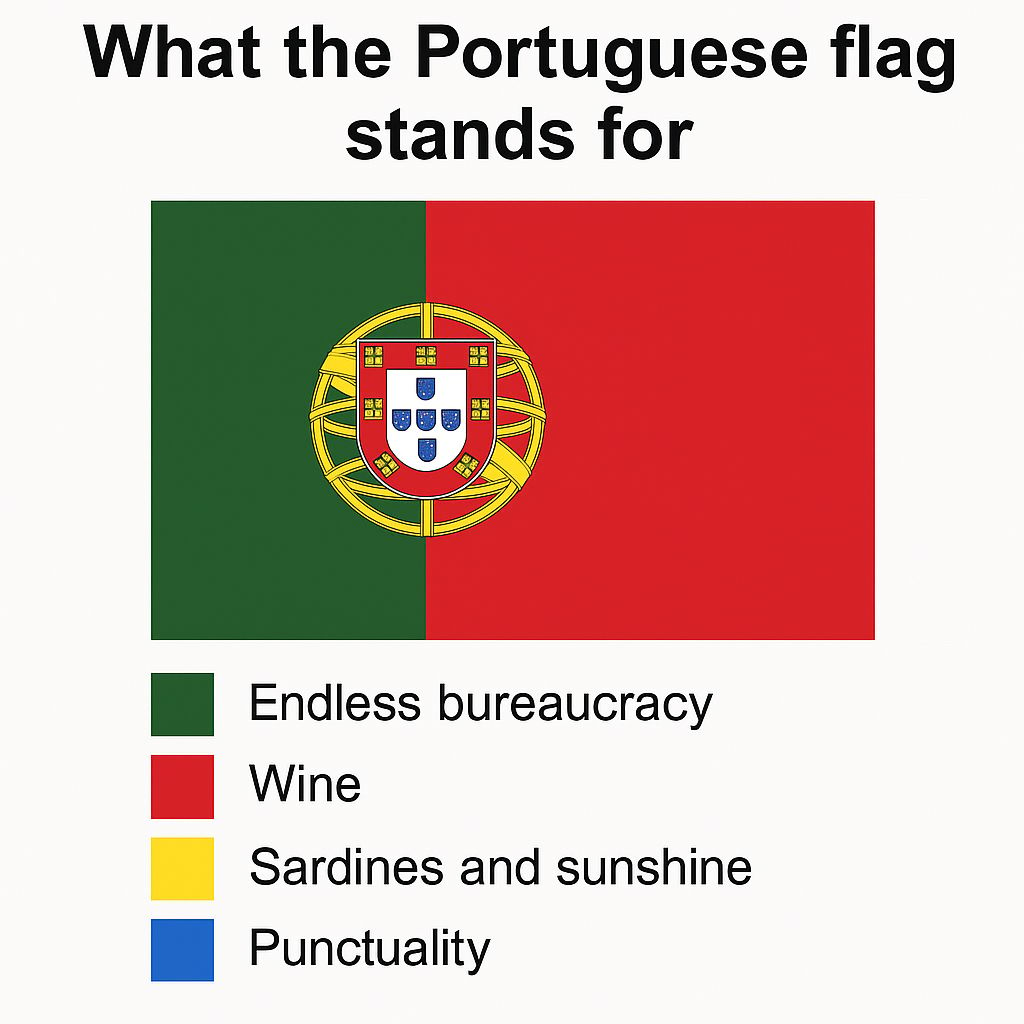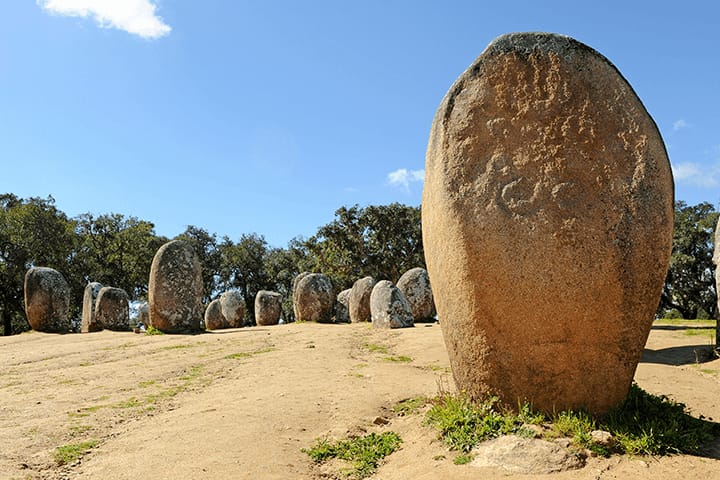Happy Sunday, beautiful people ⛅️
This newsletter is reaching you a little later than usual because we’ve had yet another medical emergency to add to our Portugal-experiences list.
When I first started writing The Expat Hustle, it was partly to share our family’s lessons learned while living here, and my husband’s very first medical emergency was a big reason behind it. Well, this week he decided to keep things interesting with another ER visit and emergency surgery for a malfunctioning VP shunt.
The difference this time? We knew what to do. Instead of stopping at smaller hospitals, we drove straight to CHUC Coimbra. Within hours, he’d had six scans (including two CTs) and was in surgery just 10 hours after arriving. Because his medical history was already on file, there was no need for frantic explanations or pleading for urgency like last time. He’s already on the mend, and we’re deeply relieved.
I’m also overwhelmed with gratitude for everyone who reached out with messages, calls, and even meals. Moments like this are a powerful reminder of how essential your expat community becomes when life throws curveballs. Thank you. 💛
So, here’s what’s in store today:
✅ Week 3 of The Great Portugal Expat Experience Project
🏚 A must-read article on renovating your home in Portugal
📝 Fresh hustle updates from our friends at ExpatsEverywhere
… and more!
Let’s dive in, shall we?
📷 Pic of the week
Cromeleque dos Almendres is one of the oldest and largest megalithic complexes in Europe, even predating Stonehenge, with origins going back about 7,000 years to the Neolithic period. Located near Évora in the Alentejo region, the site features nearly 100 granite standing stones—some engraved with mysterious patterns—arranged in concentric circles and ovals, believed to serve religious, ceremonial, or astronomical functions. A fascinating aspect is its orientation: the stones were positioned in relation to the movement of the sun, with one isolated menhir marking the summer solstice sunrise, underscoring the site’s possible role as a prehistoric observatory. Some of the stones feature unique engravings, such as crosiers (shepherd’s canes), wavy lines, and even stylized human figures, adding to the enduring mystery and allure of Almendres.
📰 What’s Happening
WINE, FOOD, BEER
Vinhos a Descobrir – Autumn Edition, Vila Nova de Gaia (4-5 October, Porto): Over 100 wines for tasting plus local cuisine and artistic performances at Forte de Gaia.
National Dried Fruit Fair, Torres Novas (3-6 October): Portuguese dried fruits and nuts, markets and local produce.
Festival Nacional de Gastronomia, Santarém: (16-26 October): Showcase of regional Portuguese cuisines, food stalls, demonstrations, and wine tastings.
Oktoberfest at Vila Vita Biergarten (24 Sept–5 Oct, Porches, Algarve): A Bavarian-style beer festival complete with oompah band, Erdinger beer, German food, and lively atmosphere—closed on 29–30 September.
MUSIC FESTIVALS
MIL Lisboa (8–11 October, Lisbon): Festival for discovering top emerging Portuguese and international artists, with a focus on fresh sounds.
Counting Crows: Performing at Coliseu dos Recreios, Lisbon, on October 17, 2025.
ARTS, FILM, CULTURE
ModaLisboa – Lisbon Fashion Week (Oct 1–5): Portugal's premier fashion event with runway shows and creative flair.
Birdwatching Festival (2-5 October, Sagres): Nature activities, tours, and workshops in Portugal's Wild West for all ages.
MOTORSPORTS
Estoril Classics (2-5 October, Cascais): a spectacular motorsport event held at the Autódromo do Estoril, showcasing one of the largest-ever collections of historic Formula 1 cars and classic racing machines from every era. The 2025 edition marks the 75th anniversary of the World Championship, featuring action-packed races, live demonstrations, and free grandstand access from October 3 to 5
🏡 Lifestyle: The Great Portugal Expat Experience Project

Feeling a bit lost?
Welcome to Week 3 of The Great Portugal Expat Experience Project
Over the next few weeks, we’re running short, 2-minute surveys exploring a different slice of expat life in Portugal each time.
Last week’s survey — “The First Month Survival Kit” — was packed with brilliant ideas for what new arrivals really need in those first 30 days. (And yes, the survey is still open if you missed it!) Each week, we’ll tease one juicy finding from the previous survey, but the full results will be unveiled at the end of this series in our very own Expat Hustle Newcomer’s Guide, created by this awesome community. Don’t miss your chance to be part of it!
A quick overview of surveys open and coming up:
Week 4: Comfort zone must-haves
Week 5: Tech and connectivity challenges
Week 6: Health and wellness transitions
Week 7: Cultural integration helpers
Week 8: The ultimate arrival package design
✨ Fun fact from Week 2: most of you said what you really wanted wasn’t just stuff, it was a clear checklist of essentials for before arrival, on arrival, and next steps after landing. Want to know the rest? You’ll have to wait for the big reveal at the end of this series.
Week 3: The Portuguese Learning Curve
Remember your first Portuguese supermarket visit? The deli ticket system, the mystery labels, the endless guessing game at the checkout? Week 3 of The Great Portugal Expat Experience Project is all about the Portuguese Learning Curve and those “how do I even…?” moments every expat hits.
Today’s quick 2-minute survey lets you share your biggest facepalm moments, the things that tripped you up, and the lessons you wish someone had told you.
Why take part? Because your stories help future expats dodge rookie mistakes, and you’ll get to laugh (or cringe) at everyone else’s answers in next week’s newsletter.
Take the survey here ⤵️
👩⚖ Setting Up Your Will - A Quick Reminder
Still thinking about setting up your Will in Portugal?
In a previous newsletter, we covered why every expat should have a Portuguese Will, and the response was huge. If you missed it, you can catch up on the article here.
As a follow-up, Maria from Fresh Portugal is still offering my readers an exclusive 15-minute consultation to answer your questions and help you take the first steps. It’s a rare chance to get personalised, expert guidance and tick off one of the most important items on your to-do list.
👉 Book your 15-minute meeting here: https://calendly.com/mariacancio-freshportugal
📣 Hustle Shout Out 📣
Meet Slate & Key — a fresh new project by Kalie from ExpatsEverywhere designed to make the newcomer’s journey to Portugal a lot less stressful. Think step-by-step guides, real-world tips, and tools for everything from settling in and finding your rhythm to mastering local logistics.
Slate & Key helps individuals and families relocate to Portugal and the Iberian Peninsula with less stress and more confidence. They combine practical expertise with concierge-style support to guide you through every step of your move: from visas and paperwork to finding housing and settling into your new community.
Their goal is simple: make relocation smoother, faster, and more personal so you can focus on building the life you came for — whether that’s adventure, work, or retirement.
What they offer:
Relocation guidance for Portugal and wider Iberia
Expert help with legal, residency, and practical processes
Concierge-style support for housing, local integration, and lifestyle needs
and more!

In short, Slate & Key takes the overwhelm out of moving abroad and helps you start your new chapter feeling prepared, supported, and excited.
Want a behind-the-scenes look? Follow Kallie on Instagram, where she shares her own stories and hacks for easing into expat life: the wins, the challenges, and the simple strategies she’s using so you can hit the ground running.
Get started by completing their form here: https://slateandkey.com/lets-connect/
💰 The Hustle Fund — Money, Taxes, and all things Financial

If the first two weeks of our Expat Experience Project (survey above) have taught me anything, it’s that Portugal has a way of catching us off guard.
Short stays, holidays, and yes, even those LSD trips (Look, See, Do … what were you thinking?) don’t prepare you for the realities of daily life here. But despite (or maybe because of) the bureaucratic headaches and odd hurdles, Portugal is still a land of opportunity.
One of the biggest opportunities? Buying a home that needs some TLC and taking on a renovation project. You can often snatch up a soon-to-be dream house at a much better price than the picture-perfect one next door. But (and it’s a big but), renovating in Portugal is its own unique adventure.
That’s why I turned to the experts at Fresh Properties to get the real lowdown on how to tackle renovations here. They’ve seen it all, and their advice could save you time, money, and a lot of stress. So, before you roll up your sleeves and start swinging a hammer, let’s hand it over to the experts.
*Editor’s note: Minor edits have been made for formatting and style only.
The Challenges of Renovating in Portugal: What Every Expat Should Know
So, you’ve bought your new home in Portugal and are ready to dive into a renovation project! It’s exciting, but it can also be stressful, and knowing what to expect before you begin will save you time, money, and headaches.
The first thing to understand is that in Portugal, good builders are like gold dust. Skilled contractors are in high demand, and unfortunately, there are plenty of stories of projects left half-finished after advance payments were made. This is not just with expats either - there are many Portuguese natives with a tale to tell.
Even with the right team in place, renovations nearly always come with surprises. Unexpected costs, delays, and permit requirements can easily throw a budget off track. Even a language barrier can quickly turn a project south when something has been misinterpreted, so make the most of translation tools if there’s any shadow of doubt! It’s important not only to plan carefully, but also to understand the specific quirks of the Portuguese renovation process because the real cost goes far beyond just materials and labour.
From permits to rising costs and shifting timelines, careful planning is your best defence against budget shocks
Navigating Permits and Paperwork
One of the first surprises many expats encounter is the bureaucracy. Renovation permits in Portugal can take weeks or even months to secure, depending on the scale of work and local municipality regulations. Missing paperwork or incomplete documentation can result in fines or forced work stoppages. Hiring a local architect or engineer who understands municipal processes adds to the cost, but is necessary.
As a general rule of thumb, any works inside a property don’t require planning permission, but anything to alter or change the exterior requires approval from the local council or câmara municipal. Provided that it doesn’t compromise the structural integrity of the building (it’s best to consult with a structural engineer to be sure), then you can remove internal walls and make a space more open plan to suit your needs. A lot of the older houses in Portugal will have smaller rooms, which, when opened up, can create a more modern and inviting living space.
Timelines – Expect Delays and Disappearing Builders
Perhaps the biggest challenge of all is managing timelines. In Portugal, there’s a severe shortage of skilled builders, which means everyone is competing for the same contractors. Even with permits in place and materials ordered, delays are common, usually simply because your builder is juggling multiple jobs.
It’s more the norm than the exception to get halfway through a project only to find that your builder has disappeared to work on another site, leaving yours on hold. This stop-start rhythm drags projects out far longer than expected, and it can be frustrating.
Because of this, it’s vital to plan with flexibility and protect yourself through staged payments tied to progress. Paying too much upfront is risky, as it gives your builder little incentive to prioritise your project when other opportunities come up. With milestone-based payments, you keep leverage and reduce the chances of being left mid-project with no clear completion date.
The Expat Price Premium
There’s also the subtle, sometimes frustrating, reality that being a foreigner can affect quotes. This isn’t always intentional; communication gaps, assumptions about willingness to pay, or differences in expectations can lead to cost jumps. Negotiating clearly, getting multiple quotes, and understanding local pricing norms can help avoid surprises.
Another important detail is the way tax (IVA/VAT) is applied to building work in Portugal. Renovation labour carried out by a registered contractor can often qualify for a reduced VAT rate of 6%, but only if the work is on residential property and meets certain conditions (for example, not luxury finishes or major new-build projects). If you buy materials yourself, however, they will usually be charged at the standard VAT rate of 23%.
This difference can make a big impact on your budget:
Buying through the builder may seem more expensive upfront, but it often works out cheaper because of the reduced VAT rate.
Buying directly as a private individual means you pay 23% VAT, even if the builder is the one installing it.
Builders who are experienced with renovation projects know how to structure quotes to pass along these savings correctly. Unfortunately, less scrupulous contractors may try to pocket the margin or not explain the breakdown clearly, leaving clients (especially expats unfamiliar with the system) paying more than necessary.
The key is to ask for itemised quotes that separate labour, materials, and taxes, and to clarify whether the 6% or 23% rate applies in each case. Understanding these nuances puts you in a stronger negotiating position and helps avoid the “expat premium.”
How to Mitigate the Risks
Always get multiple quotes and a clear written estimate
Find a builder or project company that you can trust, and ideally comes with a recommendation
Budget extra time and money for permits and unexpected delays
Consider insurance for larger projects
Do your research and check out local groups for recommendations. To protect yourself, always agree on staged payments linked to progress, and if you find a reliable contractor, hang on to them, they’re worth their weight in gold!
While renovations in Portugal come with challenges, being prepared for the hidden costs means you can focus on the excitement of creating your dream home. With foresight and trusted guidance, what feels daunting at first can turn into one of your most rewarding investments.
🏡
With thanks to our collaborator, Stephanie Box, Real Estate Consultant at FRESH Properties, for her valuable insights and contributions to this article.
For more information on all things property, you can reach out to Stephanie via email below. Alternatively, WhatsApp the surprisingly helpful AI Estate Agent, Pedro, for real-time answers to your questions.
📧 Email: [email protected]
…And That’s All Folks

Thanks for reading! 💌
Hustle on!
Angelique🧞♀️
Was this newsletter forwarded to you? Don’t miss next week’s scoop by signing up here.
☕ If this newsletter helps you navigate expat life, consider fueling my next research session with a coffee! Click HERE 💟 You ROCK! Thank you!! 💌
Disclaimer: The links I share are for products and services I’ve actually used and recommend. Sometimes, I get to share a referral link, which might throw a little reward my way—but never at your expense. You’ll pay the same price set by the supplier, no sneaky markups. My recommendations are always based on experience, not commissions. Thanks for supporting this newsletter—you rock!


